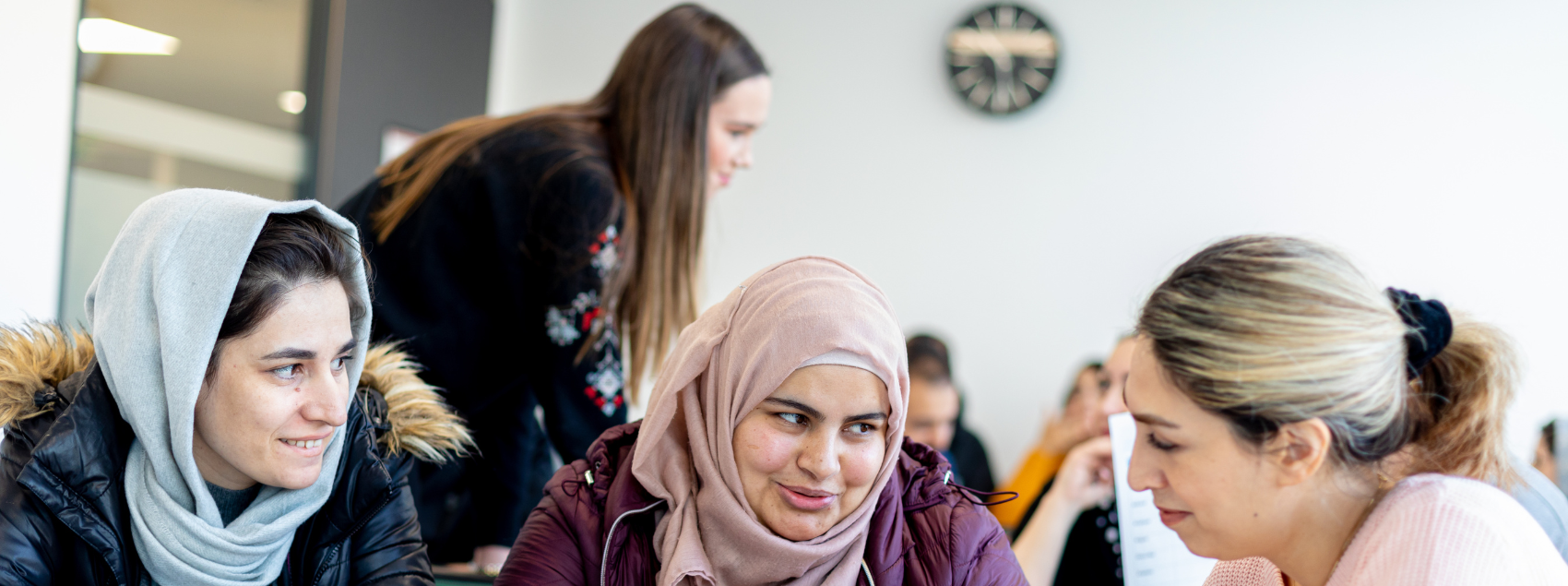
Research published today on asylum seeker and refugee women’s experience of taking English for Speakers of Other Languages (ESOL) courses has found that learners are highly motivated and want more intensive courses to accelerate their progress.
Participants in the research reported that with many courses delivered at just one hour per week, it can take years to achieve ESOL certificates at a high enough level to progress, impacting their opportunities for employment and further learning. By contrast, Ukrainian and Afghan participants in the research spoke highly of the benefits they had received under targeted government schemes to help them to access courses more quickly. They said this had improved their learning experience and integration with local communities and suggested this could be rolled out to other refugee and asylum seeker groups.
The research revealed that 95 per cent of learners had a positive experience, citing confidence building, feeling they were doing something positive for their future and helping them to better engage with their children’s learning. To support others to take up ESOL courses, participants recommended improving access to information to explain that learning is fully funded, to ease any concerns about affordability. Women also wanted to see information about childcare options in their local community to support their attendance.
Research participants recognised that ESOL classes play a vital role in helping them to communicate outside the classroom in their new communities. As a result, they recommended including local speech and vocabulary could be included in the curriculum and taught alongside a focus on British values, traditions and cultural norms.
The research, undertaken by the Seetec Practice Research Unit consulted 106 men and women refugee and asylum seekers on ESOL courses through an online survey, and 15 women refugee and asylum seekers on ESOL courses in focus groups.
Seetec’s education practice research officer, Holly Dono, who led the research said: “This research sheds new light on women refugee and asylum seekers’ experience of learning English on arrival to the UK. It finds that women are strongly motivated to learn English, progress quickly and understand their local communities more fully. Their experiences of courses are positive but there is a real opportunity to use these valuable research insights to further improve outcomes for women, their families and wider communities.”
Seetec chief operating officer, Suki Binning, said: “We commissioned this research to understand how woman experience ESOL courses so we can improve provision and deliver higher quality services. With this new evidence, we will work with commissioners of our service to look at opportunities to ramp up our intensive fast-track English courses so we can unlock further work and study opportunities for people in these important programmes.
“This evidence suggests looking again at the current rules which state refugees not from Ukraine must wait six months before qualifying for free English language courses. Many people arrive in Britain with skills developed in their country of origin and if they can hone their English more quickly, we will all benefit if they are able to realise their full potential. We have already started research to look at how ESOL courses and providers can help participants avoid being de-professionalised due to their refugee or asylum seeker status.”
For the full report, click here.
For the executive summary, click here.
For the research poster, click here.



